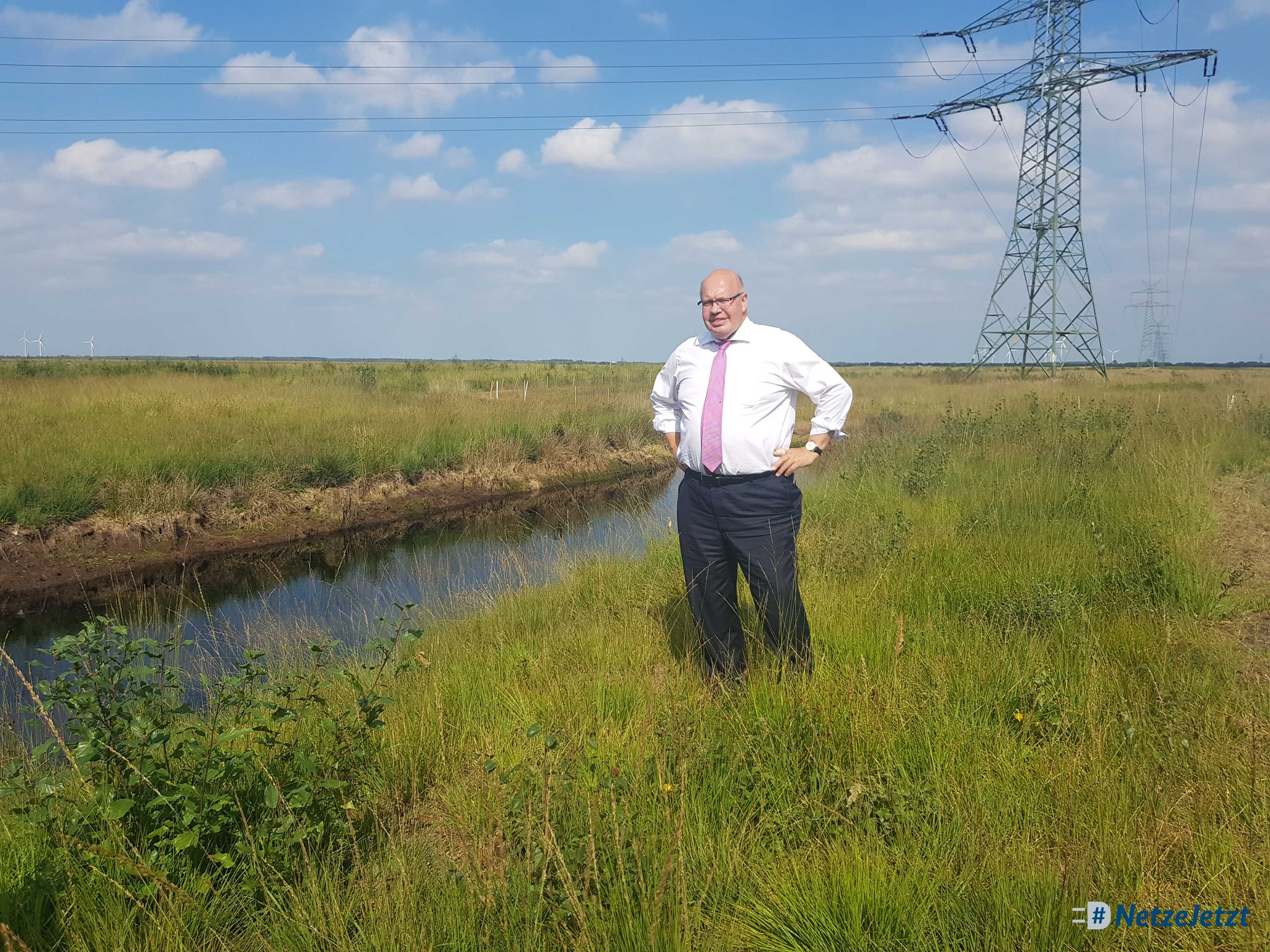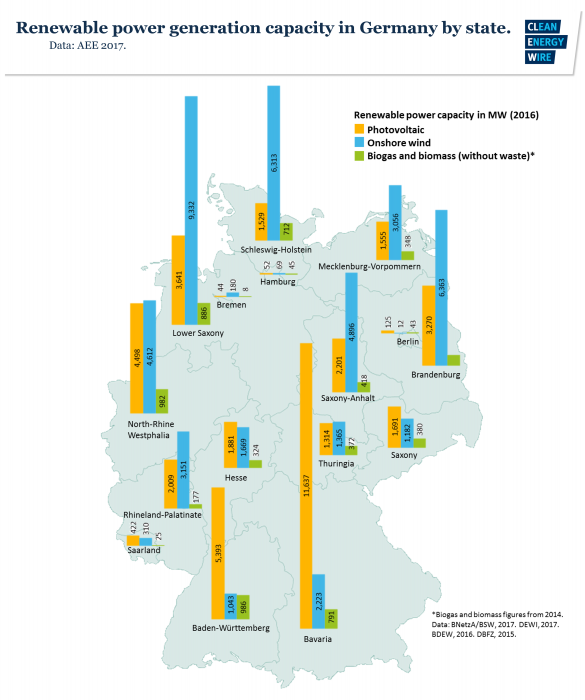Minister promises stability for troubled German wind power sector
The western German port of Emden is a stronghold of the German energy transition. Located in Lower Saxony, which boasts more onshore wind power capacity than any other German state at over 10,400 megawatts (MW), wind parks and power lines feature in almost every vista. Locals from the neighbouring region of Emsland take pride in having supported the planning and building of new power lines to transport wind power to the rest of Germany.
Transmission grid operator TenneT is to eventually land six offshore-wind park connection cables and build four converter stations close to Emden, one of which was ceremonially “plugged in” by Germany’s federal Energy and Economy Minister Peter Altmaier today.
But the region is not unscathed by Germany’s bumpy journey away from nuclear and fossil fuels towards an energy system largely based on renewable sources. Even as TenneT plans the next stage of the transition, devising ways to turn offshore wind power into other forms of energy (power-to-x), and local MP Johann Saathoff (SPD) promotes storage of renewable hydrogen in former salt mines, the men and women building wind turbines here fear for their jobs.
At the beginning of August, Germany’s largest wind turbine supplier, Enercon, head-quartered near Emden, said it would shift its focus to exports and therefore need fewer German suppliers, blaming deteriorating market conditions in its home country. Following the announcement, calls on Altmaier to stabilise the growth of renewables intensified, and he had to shift the focus of his trip from the delayed grid expansion to an industry in disarray.
From 2014 to 2017, an average of 4,600 MW of new onshore wind power capacity was added to the German energy system each year. But only 3,500 MW are expected this year, and just 2,000 MW in 2019, according to German Wind Energy Association (BWE) estimates. Wind power company Nordex posted a drop in sales and profits this week. The wind power lobby warns that the 2016 switch from feed-in tariffs to an auction system to determine wind electricity remuneration could damage the entire industry if expansion figures aren't stabilised soon.
“It’s clear we cannot repeat the wind power growth of the past year”
“What we need now is a framework for the volume of new renewable energy capacity to be added to the system by 2030. The industry needs a reliable roadmap that it can count on,” Lower Saxony’s Environment Minister Olaf Lies told the Clean Energy Wire.
As a first step, the government must come good on its agreement in the 2018 government coalition treaty to introduce additional tenders for renewables in the years 2018 and 2019, Lies said. Altmaier has responded to this demand, promising to tackle the reform this autumn, but adding that “conflicts within the coalition on the subject first had to be resolved.”
“It’s clear we cannot repeat the wind power growth of the past year, but we want to make sure the industry has a future in Germany,” Altmaier said, referring to strong growth over recent years.
Regarding the 800 jobs estimated to be at risk in the region due to Enercon’s new focus on exports, Altmaier said he wouldn’t interfere with the company’s decision but would try to provide planning security for the wind power sector.
Enercon, however, wasn't playing ball. The company’s executive director Hans-Dieter Kettwig didn’t show up for a meeting arranged with Altmaier and Lies on Thursday morning. Local MP Gitta Connemann (CDU) said Enercon, which employs 18,000 people worldwide, was “playing an ugly game” by insisting it wasn’t responsible for jobs at supplier firms in the region. “Most of these companies were once founded as Enercon subsidiaries,” she told Clean Energy Wire, “and they benefited from energy transition policies.”


